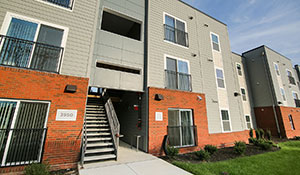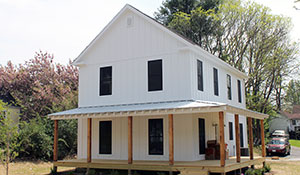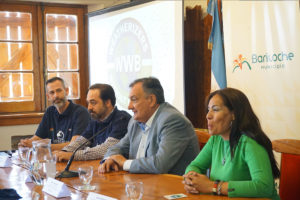May 30, 2018
Maria was 9 years old and an avid soccer player when she and her mother moved in with her grandmother in Campana, a city in the province of Buenos Aires, Argentina. Shortly after, Maria began to experience problems breathing and had less energy to maintain her active lifestyle. Eventually, her mother stopped her from playing sports and kept her at home until her health could improve.
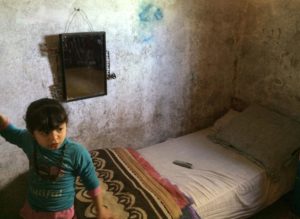 Little did her mother know it was the home itself that was deteriorating her daughter’s health. When representatives from Community Housing Partners (CHP), Weatherizers Without Borders (WWB), and FOVISEE came in to inspect the home, they found that the walls were covered in a black substance. After the weatherization team was able to rid the home of the black substance, Maria’s health improved and she was able to return to the soccer field.
Little did her mother know it was the home itself that was deteriorating her daughter’s health. When representatives from Community Housing Partners (CHP), Weatherizers Without Borders (WWB), and FOVISEE came in to inspect the home, they found that the walls were covered in a black substance. After the weatherization team was able to rid the home of the black substance, Maria’s health improved and she was able to return to the soccer field.
Mark Jackson, Vice President of Energy Solutions at CHP, says that people like Maria are the reason he returns to South America multiple times each year to advocate for local weatherization programs.
During his most recent visit in February, Jackson conducted a weatherization tour of three cities in two countries. Jackson, who is also the Vice President and COO of Weatherizers Without Borders, visited Argentina and Chile on a Patagonia tour to accomplish three main goals.
First, Jackson and his colleagues at WWB visited the future site of the first weatherization training center outside of the U.S. The new training center will be established in San Carlos de Bariloche, a city in the province of Río Negro, Argentina, situated in the foothills of the Andes. The city was chosen due to existing partnerships among the City of Bariloche, WWB, FOVISEE, Fundación Avina, and Citi Foundation.
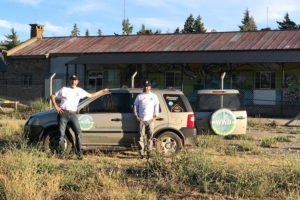 “With Bariloche donating a parcel of land and providing great support, we knew that this would be the perfect place to establish the first international training center outside of the United States,” said Jackson.
“With Bariloche donating a parcel of land and providing great support, we knew that this would be the perfect place to establish the first international training center outside of the United States,” said Jackson.
After concluding a visit to Bariloche, the group made its way to the U.S. Embassy in Santiago, Chile. The embassy’s Facilities Manager had requested that Jackson and his team come back to train staff to weatherize six embassy buildings. In addition, the group participated in a discussion with the Chilean government about a possible weatherization pilot program in partnership with a local non-governmental organization in Santiago. This would be the first weatherization project in Chile.
To finish up the trip, the team traveled to Buenos Aires, Argentina where team members presented at the G20 Energy Transitions Working Group Conference’s “Energy Efficiency and Renewable Energy Forum.” Hosted by Argentina and its new administration under president Mauricio Macri, the event aimed to bring energy efficiency and renewable energy into the same conversation—two subjects that are traditionally discussed separately.
“They are trying to create a lot of social change within the country and their intention is to touch all sectors, including low income,” said Jackson.
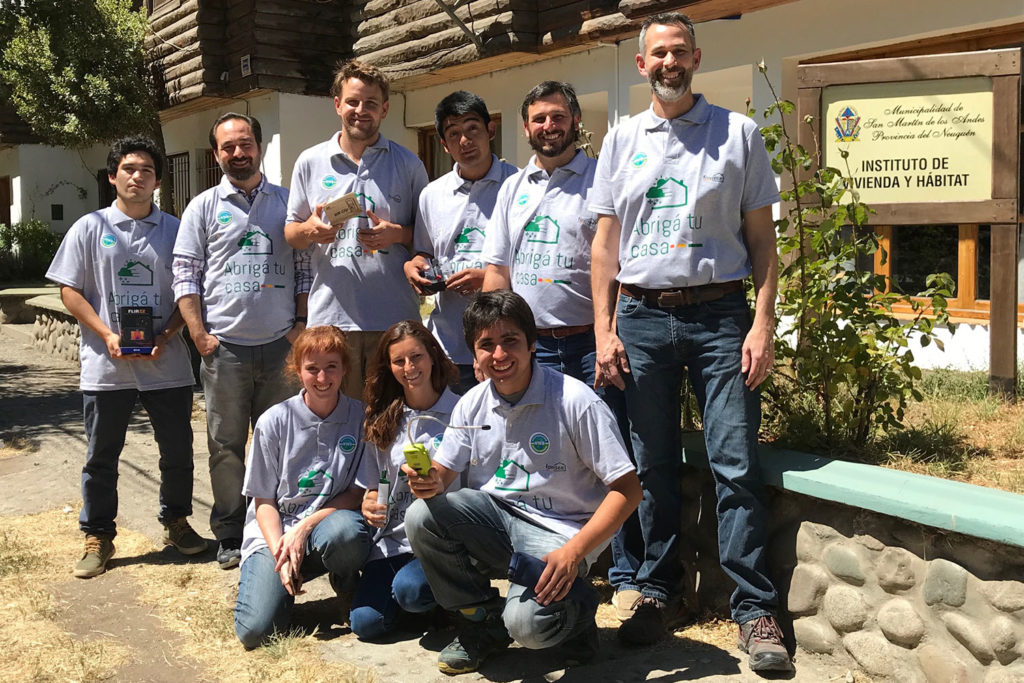 Jackson later had the opportunity to share about the power of weatherization to an audience of 50 representatives from all G20 countries and the European Union, including ministers of energy efficiency and renewables. He emphasized that every $1 invested in weatherization typically generates $4.50 in energy and non-energy benefits.
Jackson later had the opportunity to share about the power of weatherization to an audience of 50 representatives from all G20 countries and the European Union, including ministers of energy efficiency and renewables. He emphasized that every $1 invested in weatherization typically generates $4.50 in energy and non-energy benefits.
That evening, he had a meeting with other world leaders in energy to talk about how they can exchange best practices and help other countries develop their own weatherization pilot programs.
When asked about the best practice in spreading weatherization to new areas, Jackson explained, “We have to start with local municipalities. Once we get them involved and excited, they become our advocates to convince the federal government to pay attention.”
In fact, Jackson had an opportunity to meet with Juan José Aranguren, Argentina’s Minister of Energy, while he was at the summit. Aranguren accepted Jackson’s invitation to visit CHP’s Weatherization Training Center in Virginia in the coming year.
As CHP and WWB’s reputation in South America strengthens, Jackson hopes that more people like Maria will be able to live healthy lives and no longer need to make a choice between food and heat.

